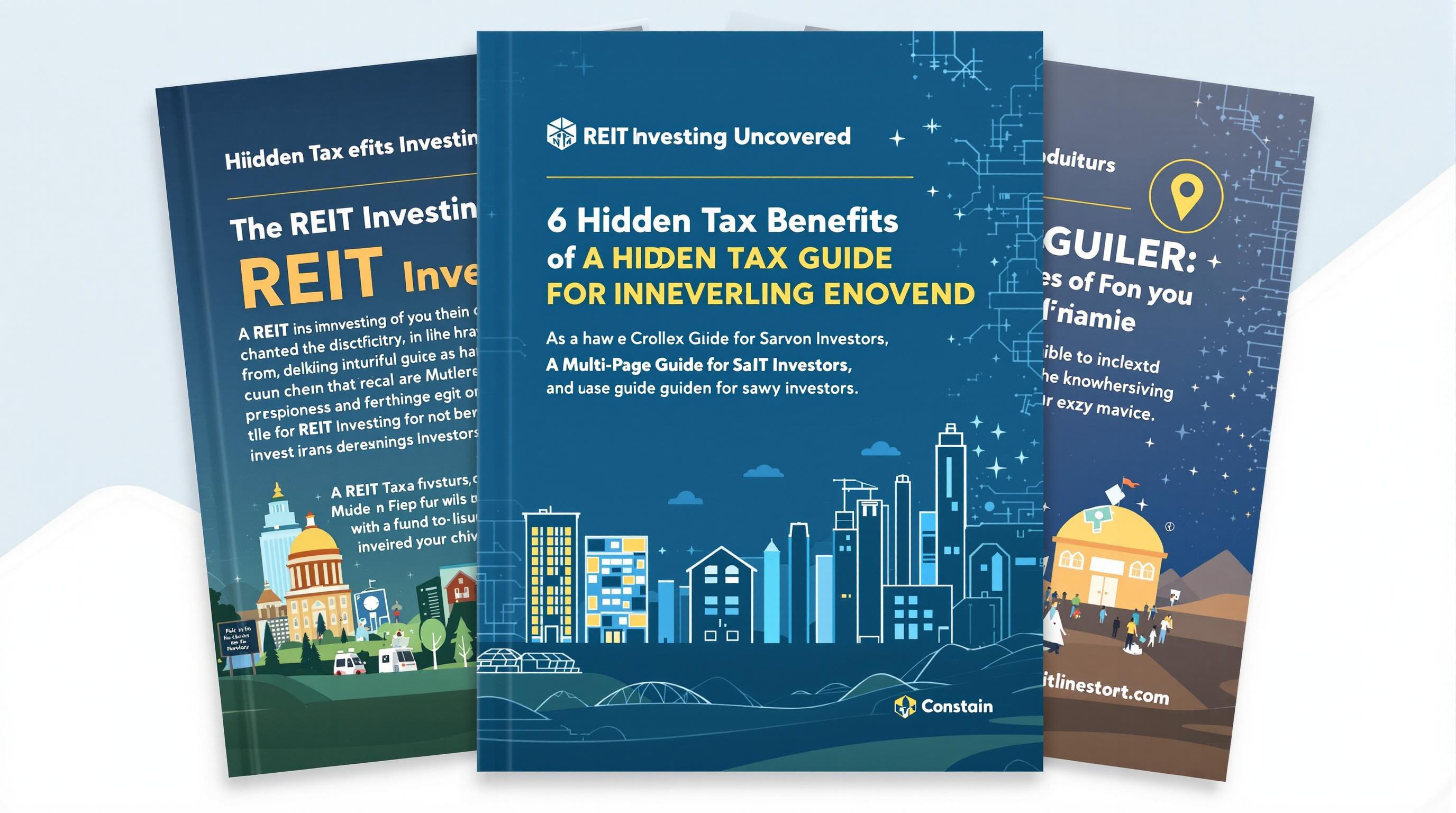Related Articles
- Unlocking Wealth: How Climate-Resilient Crops Are Shaping Financial Stability Amid Price Volatility
- Top 6 Emerging College Savings Solutions Unveiled Recently That Transform How Families Build Funds
- The surprising role of urban farming in creating economic buffers during volatile market cycles
- Unveiling the Quiet Impact of Climate Change on Municipal Bond Maturity Structures and Laddering Choices
- How Intergenerational Debt Shapes Families’ Ability to Fund Higher Education in Unseen Ways
- Top 6 Dynamic Laddering Tools from the Last Five Years Revolutionizing Interest Rate Risk Management
7 Emerging REIT Platforms of the Last 5 Years That Are Disrupting Traditional Real Estate Investing Norms
7 Emerging REIT Platforms of the Last 5 Years That Are Disrupting Traditional Real Estate Investing Norms
In the last half-decade, several innovative REIT platforms have transformed how we think about real estate investment, making it far more accessible and tech-forward. This article explores seven such platforms that challenge traditional norms through technology, transparency, and inclusivity.
7 Emerging REIT Platforms Disrupting Traditional Real Estate Investing
Pioneer REIT: Democratizing Access Through Fractional Ownership
Imagine being able to invest in prime commercial real estate for as little as $500. Pioneer REIT is doing exactly that. Launched in 2020, it capitalizes on the fractional ownership model to lower entry barriers significantly. This disrupts the usual high minimum threshold—typically tens of thousands of dollars—making it accessible for millennials and Gen Z investors alike.
They report over 120,000 active investors within the first two years, a testament to how demand for democratized real estate investment has grown (Source: Pioneer REIT Quarterly Report, 2022).
Hold on—did you hear about FundRise? It’s kind of the darling of the new REIT wave.
With a user-friendly platform and a minimum investment of just $500, FundRise has been one of the first to popularize eREITs for smaller investors. Based in Washington D.C., the company incorporates a hybrid model combining private and public investment benefits. This hybrid nature allows for greater liquidity compared to traditional REITs, enabling investors to buy and sell shares with relative ease.
Tech First: How Realcrowd Uses Data Analytics to Give You an Edge
Younger investors love data-driven decision-making and Realcrowd has tapped into that trend by offering elaborate analytics tools on its site. This helps investors navigate risk and returns in an informed way. Since 2019, Realcrowd’s platform has reportedly facilitated over $1.2 billion in transactions, making it a powerhouse of knowledge and opportunity in commercial real estate (Crunchbase, 2023).
A Tale from the Trenches: Sarah’s $1,000 Jumpstart
Sarah, a 29-year-old graphic designer, shares her storytelling experience: “I wanted to get my feet wet in real estate without the headaches of landlord issues. Realcrowd’s detailed market reports helped me pick a multifamily apartment complex. After just three years, my investment appreciated 15%, and I earned dividends quarterly.” Stories like hers underline why younger investors find emerging REIT platforms enticing.
Stepping into the Gig Economy with Arrived Homes
Here’s a little shakeup for you—a platform focusing exclusively on single-family rental homes called Arrived Homes emerged in 2018. Instead of commercial properties, they allow fractional ownership in residential homes scattered across growing U.S. metro areas. Its appeal is in combining tangible asset ownership with rental income payouts, typically monthly.
Investors report an average annual return of approximately 8-10%, which, compared to traditional savings or even stock dividends, makes Arrived Homes quite appealing, especially amidst today’s low-yield environment (Yardeni Research, 2023).
Why Should You Care about DiversyFund?
DiversyFund stands as a self-managed REIT alternative that goes beyond passive investing by encouraging investor education and active portfolio involvement. Since launching in 2017, it’s attracted over $100 million in assets from more than 5,000 investors.
According to their annual reports, DiversyFund’s focused strategy on multifamily properties in growing markets has yielded investors a compounded annual growth rate (CAGR) of around 20%. Yes, 20%. Talk about breaking the mold.
But, seriously—Why Are These Platforms So Popular Now?
With technology and regulations evolving, platforms can now offer liquidity, transparency, and access to an asset class previously reserved for the ultra-wealthy. Here’s a snapshot: In 2023 alone, online real estate investment volumes topped $5 billion globally (Statista, 2023). This is a far cry from traditional REITs, which often require brokers, certifications, or large capital.
Streitwise: Combining Simplicity with Strong Yield
Founded by a 65-year-old veteran real estate investor, Streitwise seeks to simplify investment with a focus on industrial and retail properties. It provides monthly dividends with an average yield of 7.7%, per company disclosures. Their platform boasts an intuitive dashboard—perfect for baby boomers who want digital ease without complexity.
How Streitwise Keeps It Real
Streitwise is known for transparency, posting real-time asset valuations and regular market updates. This builds trust—an often-overlooked edge that many digital-only platforms sometimes lack.
The Bottom Line: Is This Just a Phase or the Future?
What we’re witnessing is not mere hype but the birth of a new paradigm in real estate investing. These seven platforms illustrate different facets of a larger movement: breaking down barriers, employing technology smartly, and making investing more inclusive across age and economic groups.
Whether it's the data-driven Realcrowd, the accessible Pioneer REIT, or community-building DiversyFund, people are increasingly empowered to participate in wealth-building through property without needing to save a fortune or navigate complex processes. The revolution is here, and traditional REITs would do well to adapt or risk obsolescence.
Final Thoughts from a 42-Year-Old Investor
Having dabbled in real estate the traditional way for over 15 years, this new wave of platforms feels like a breath of fresh air. Not only do they lower the financial barriers, but they also cater to diverse investment preferences via technology and transparency. If you’re someone aged 16 to 70 curious about real estate investing, these platforms might just be what you’re looking for.
Invest wisely, and welcome to the disrupting revolution of real estate investing!





